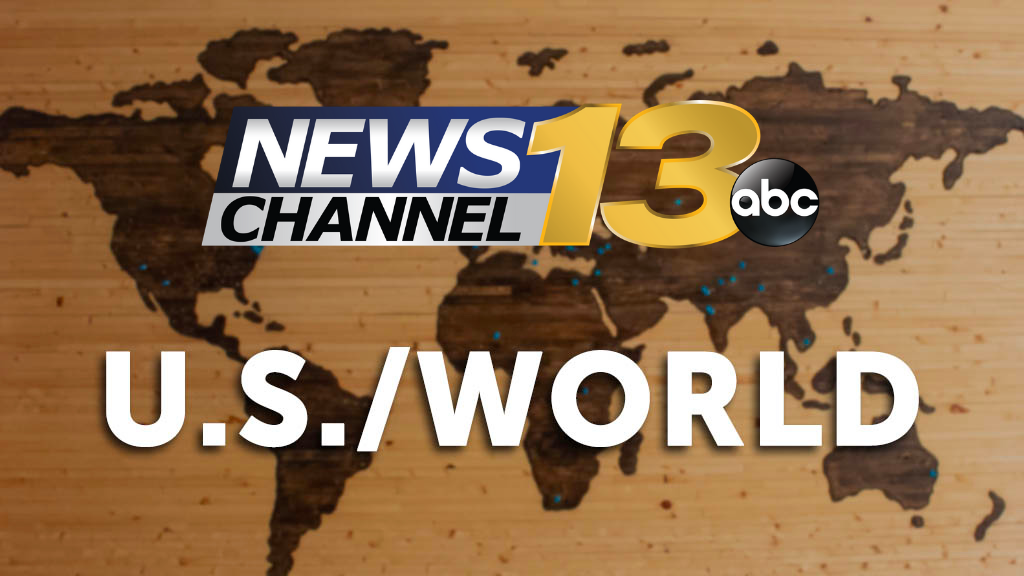Meet the ‘seed detective’ on a mission to save our rarest vegetables

Words by Sasha Fairhead, video by Gisella Deputato, CNN
Hidden amongst lush Welsh woods and fields of wildflowers, grows an assortment of rare vegetable varieties. They might look ordinary enough, but many have been saved from extinction.
Each variety has its own story. The Syrian long pepper was grown from seeds taken out of the country during its conflict in 2011. The Llanover pea was brought to Wales by a German prisoner of war after World War II as a gift for a maid he had fallen in love with.
This plot is the work of Adam Alexander, a self-styled “seed detective” who tracks down rare plants, helping to preserve genetic diversity in our crops and reshape our relationship with food.
Saving vegetables like these is about more than just conserving unusual species. It could help feed our planet in the future.
The cost of mass monoculture
Between 8 and 20% of the world’s estimated 400,000 known plant species are edible. Yet we depend on just 200 plant species for the global food supply. Just nine of those account for 66% of the world’s crop production.
As a result of mass monoculture, where farmers grow a single crop, 75% of plant genetic diversity has been lost in the last century. With many of the remaining agriculturally viable species under threat from climate change, diversifying the crops we use could be a solution for future food security, species conservation and environmental protection.
Alexander is one of 180 volunteer “Seed Guardians” across the United Kingdom who share a passion for collecting and saving rare, endangered and traditional “heirloom” vegetable varieties with the hope of putting them back on our plates.
These Seed Guardians work with the Heritage Seed Library, a conservation initiative run by the horticultural charity Garden Organic. It operates like a normal library but instead of checking out books, members check out seeds. They plant the seeds, grow the plants, harvest the next generation of seeds and share the surplus with members.
The Seed Guardians are specialty growers responsible for 50% of the library’s stock.
“This is not simply about conserving the past but securing genetic resources for future generations,” says Catrina Fenton, head of the Heritage Seed Library.
There are an estimated 450 seed libraries around the world, ranging from simple seed swaps to programs at public libraries and more established institutions. By promoting the sharing of seeds, they differ from seed banks — such as the Svalbard Global Seed Vault, in the Arctic Circle — which are closer to a safety deposit box for seeds.
“Rather than having them sitting on a shelf … we want to share these really interesting varieties — and potentially in the future, very valuable varieties — with growers around the UK,” says Fenton.
The Heritage Seed Library is helping to conserve around 800 vegetable varieties. Thirty of these, such as the Bronze Arrow Lettuce and the Summer Sun Squash, are now commercially available again and no longer require conservation.
‘A pea nut’
In over three decades, Alexander has amassed his own personal library of 493 seeds, of which 96 have been grown for The Heritage Seed Library.
“I’m a bit of a pea nut and I grow at least 15 different varieties every year,” says Alexander. His favorite species he grows is the Avi Joan pea, donated to him by a Catalonian friend who he says was the only grower in the world before it was shared with Alexander.
The Avi Joan is now grown by members and its seeds stored in the library’s fridges for safekeeping, alongside others, like the hardy and disease-resistant leek Sim Seger and the lengthy broad bean Bowland’s Beauty.
Prince Charles — who is an avid gardener and patron of Garden Organic — also helps preserve rare species and grows some of the library’s varieties at his private residence in Gloucestershire. These include the tall and nutty flavored Mrs Lewis Purple Podded climbing French bean and the Black Valentine dwarf French bean.
Alexander says sharing seeds for others to grow can help remind us how important it is to cultivate a relationship with our food.
Whether it is herbs on a windowsill or local tomatoes on your balcony, “the thing that we can do as individuals to try and connect us with our food is first of all, try and grow something,” says Alexander.
“As soon as you put some seeds in the ground, even if it’s just to grow some basil or some parsley on your windowsill, suddenly you have a connection, a direct connection with that thing that you’re going to put into your tummy.”
The-CNN-Wire
™ & © 2021 Cable News Network, Inc., a WarnerMedia Company. All rights reserved.